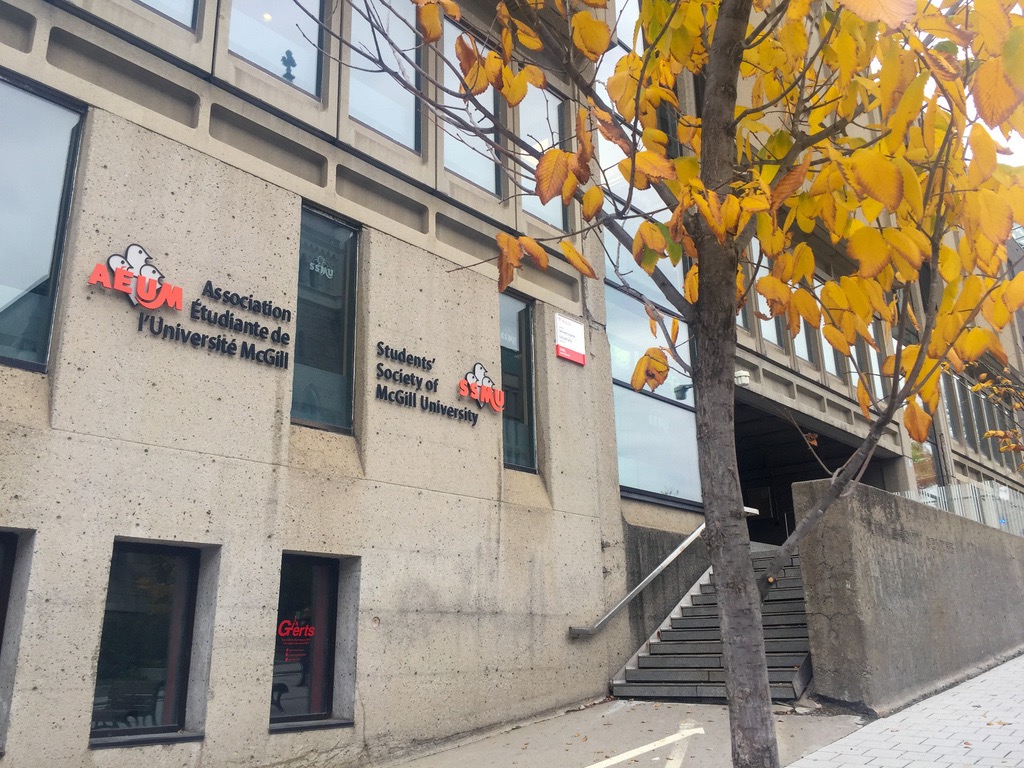Students’ Society of McGill University (SSMU) Vice-President (VP) University Affairs Brooklyn Frizzle submitted a motion to pay Legislative Council members for their work to the SSMU Steering Committee for the Oct. 8 Legislative Council meeting. While councillors and senators are expected to attend Council meetings, hold office hours, and work on motions for submission, which often require up to four hours per week, executives work full-time, and are already paid. The Steering Committee, which sets the agenda for Legislative Council meetings, determined that more consultation was necessary and subsequently delayed it to Winter 2021.
As the VP University Affairs, Frizzle is responsible for overseeing equity initiatives and complaints. Frizzle attributes their focus on employment equity to their experience doing unpaid work for Queer McGill.
“One of the biggest problems we faced [working at Queer McGill] was a lack of contract hours,” Frizzle said. “[We often had to] work unpaid just to keep the organization running. At the end of the day, SSMU wouldn’t exist without […] student labour, and that’s equally true for councillors and senators.”
Frizzle plans to put forward this motion to the Winter 2021 referendum that, if ratified, would salary SSMU councillors and senators. The fee amount would be determined using SSMU’s pay equity scale, a system based on job responsibilities outlined in the organization’s governing documents. The exact budget for the new “Representative Fees” has not yet been confirmed.
Frizzle worked with SSMU VP Finance Gifford Marpole to determine the financial feasibility of the motion. Marpole stressed the need to compensate councillors and senators, especially given SSMU’s stance against unpaid labour as articulated in its governing policies.
“I believe that not paying councillors and senators makes those positions somewhat inaccessible, especially for individuals who have to work throughout their undergrad,” Marpole said. “Providing pay will hopefully open the door for more students to run for these positions.”
According to Frizzle, this is not the first time that a motion to compensate Legislative Council representatives has been introduced. Although many individuals within SSMU have proposed ways to compensate senators and councillors, Frizzle noted that the recurring issue of needing a supervisor to prevent conflicts of interest has prevented each attempt from being successful.
Arts Senator Darshan Daryanani, who served as the Arts Undergraduate Society’s (AUS) VP of External Affairs last year, explained why he supports the motion.
“With meetings that can go up to nine hours long, [being in this position] comes at the expense of academics, physical and mental health, as well as foregoing other paid opportunities like research positions and working part-time,” Daryanani said.
Daryanani emphasized the advantages that implementing the motion would have for SSMU.
“Not only will the Representative Fee alleviate the financial barriers for those who wish to be involved in student government, but it also will serve as an added incentive for us to prioritize their roles in serving our constituents and have a healthier lifestyle,” Daryanani said.
The motion would have to be approved by the Council to be included in a referendum. Although the current councillors would not benefit from the funding as it would be implemented after their terms end, Frizzle, like the steering committee worried that the policy might be considered a conflict of self-interest.
“I think input and approval from regular members are especially important for a project like this, so I decided to pursue a student-initiated question by petition, instead,” Frizzle said. “Unfortunately, that means the question has to be delayed until I’m able to put together a petition and collect enough signatures, which I might not be able to accomplish before the Fall referendum deadline.”
Frizzle hopes to present the fee for a referendum in the Winter semester in order to be available for the next set of councillors and senators in Fall 2021.







